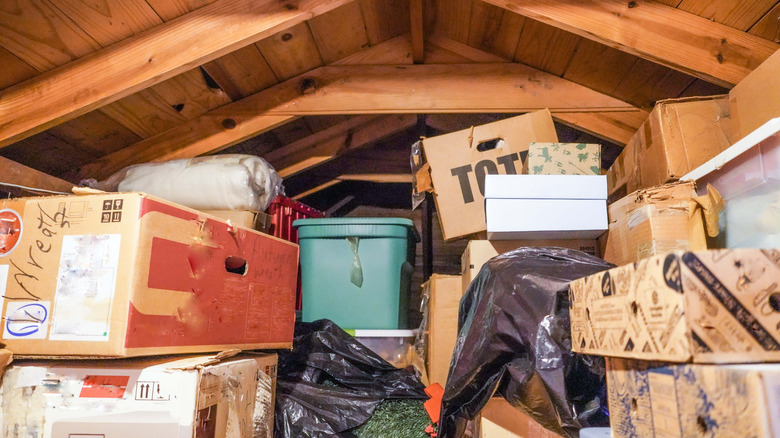The Retirement Regret That Could Come Back To Bite You
Having a clean, well-organized home without excess belongings can feel wonderful. And, it's perfectly understandable why people focus on tidying up their homes during their retirement years, when there's actually time to tackle a lifetime's worth of clutter. Besides streamlining the home, giving a set of family heirloom dishes to an adult child, for example, might make all parties happy. However, it's important not to discard certain items when you declutter, or you may face challenges if you ever need them. For example, be clear about how long you should keep your tax returns. According to the IRS, the answer is typically three years, although exceptions exist. For instance, you should keep them for six years if more than 25% of your gross income wasn't reported when it should have been, and seven years if they contain bad debt deductions or worthless securities losses. As a better-safe-than-sorry move, these records can also be kept indefinitely.
The Federal Trade Commission also recommends keeping the following documents forever: birth certificates, adoption papers, Social Security cards, marriage licenses, divorce decrees, current passports, citizenship and residency documents, military records, and estate planning documents like your will or a trust. As long as you own a home or car, keep the titles and loan documents. Do the same with lease agreements, warranty information, and more as long as the paperwork documents current situations. Besides income tax forms, save tax support documents and ones connected with selling a home for at least three years. Apart from vital documents, also make sure not to throw out any items that could potentially hold monetary value and be turned into a source of income.
Modify your decluttering approach to avoid retirement regrets
When decluttering, it can be tempting to quickly toss items to get the job done faster. Consider, instead, dividing belongings into categories; throwing away or recycling items with no value; keeping what you still need; and donating or selling belongings with value that you don't want. Items that people should sell before or during retirement – to bring in some extra cash — can include a range of categories. For example, certain old toys could be worth a lot. A 1978 Kenner Star Wars 12 Back-A Jawa figure is going for $35,000 on eBay, as of November 2025. However, even if you don't have this "Holy Grail" of Star Wars figurines boxed up in a closet somewhere, toys from these movies can bring in significant cash.
While you declutter, preserving old media — like vinyl records — and strategically selling the items can also help supplement retirement cash. According to Victrola, factors in valuations for records include the artist, scarcity (rarity and demand combo), condition, and uniqueness. Elements that can help boost value include being autographed and sealed, and whether it's a limited edition, among other factors. In general, valuable records can sell for anywhere from $500 to $3,000, with records from 1960-1970 in the genres of rock n' roll, jazz, and blues often being the most valuable. If you come across any of these as you tidy up your home, be sure you don't toss them.

